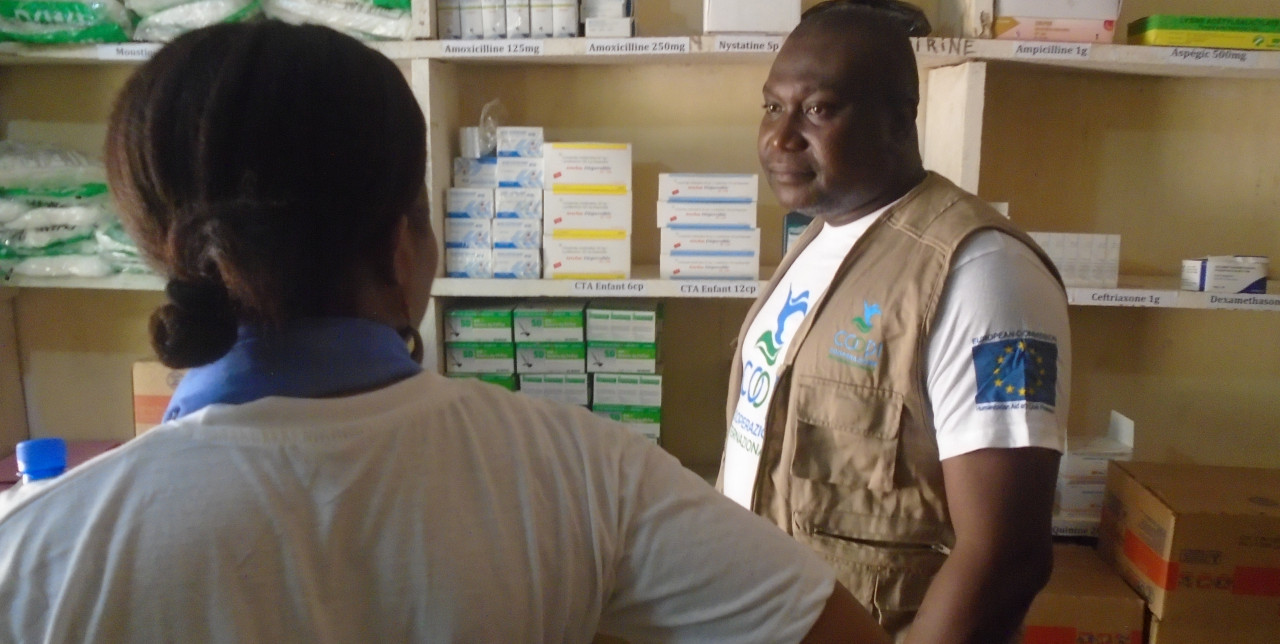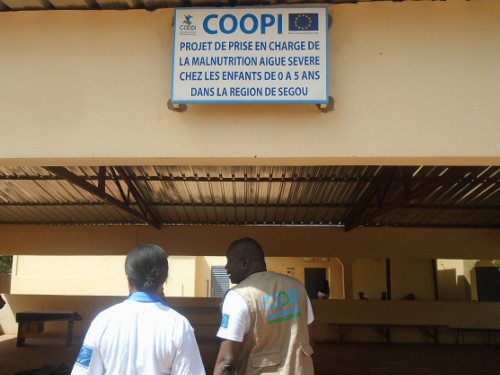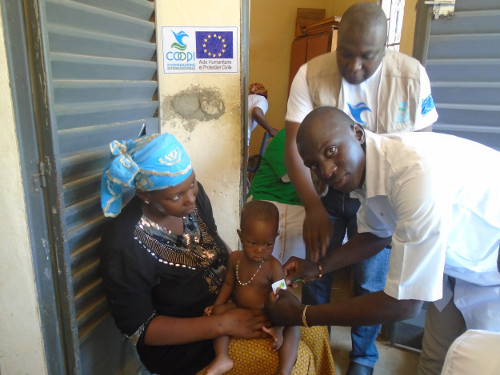31-01-2018 | di COOPI
Mali, child malnutrition project: achievements
COOPI has been combating acute and severe child malnutrition in Ségou Region since 2013 thanks to the funding of the EU Civil Protection and Humanitarian Aid (ECHO) . Mali is in fact a country where food insecurity affects 3.6 million people and where about 852,000 children (1 in 6 children) are at risk of acute malnutrition - of whom 107,000 are at risk of severe acute malnutrition.
In January 2018, we ended the fifth phase of the program, which contributed to strengthening the activities previously carried out in order to ensure the taking in charge of child malnutrition and its permanence within the communities, the Community Health Centres, the Reference Health Centres up to the Ségou hospital.
At the beginning, Ségou Health District expected 4,969 cases of malnutrition; through the good implementation of the project, it identified 4,162 cases, or 84% of the initial forecasts. Up to now, the program has reached 77,607 children under the age of 5, among whom 3,906 needed treatment and were healed, including 459 with complications. Thanks to the community awareness component, all 4,162 identified cases were assisted.
The roads that reach the villages cross a completely dry countryside. The millet that is grown in this way has been entirely harvested and the stocks stored in the barns become smaller every day. It is at this time of the year that the conditions of thousands of people are becoming increasingly difficult and it is here that 1.120 community leaders have been trained on: the causes of malnutrition; the recognition of its clinical signs; the promotion of breastfeeding; the use of local products for the diversification of the diet; which are the good infant-child feeding practices (ANB).
Today these community leaders play a fundamental role in the prevention and treatment of child malnutrition through sensitization activities, door-to-door screening and reporting cases to the Community Health Centres. These actors, moreover, can count on the training of 155 Community Health Agents (ASACO), each of whom is responsible for assisting a group of villages and relating them to the nearest Community Health Centre.
The Community Health Centres (CSCOM) offer a minimum package of activities on the territory and, thanks to the project that has strengthened their capability to take care of child malnutrition, mothers and children can receive a complete and free assistance, which starts with a general visit and continues with more specific clinical examinations. These include measuring the weight, height and circumference of the child's arm and the appetite test to identify malnutrition, the degree of the disease and the most appropriate treatment. The most serious cases are diverted to Ségou Health Centre of Reference (CSREF), which is able to provide intensive treatments and beds for hospitalization, or to the Segou hospital for artificial feeding.
If malnutrition is not eradicated within 2 years of age, it can cause irreparable damage to psycho-physical development, to the immune system and, in the most serious cases, death, not only due to the lack of food, but also due to diseases such as malaria and diarrhoea. During treatment, mothers and carers are sensitized on measuring techniques, on family planning issues, on good hygiene practices and infant-child feeding. These sessions, together with those in the villages, have contributed to a gradual change in behaviour, to increase the awareness of mothers regarding the adoption of adequate food practices and to reduce diarrheal diseases, also thanks to the distribution of hygiene kits.
In October, COOPI conducted a survey to measure the effect of sensitization. The results showed that:
- 72% of children are breastfed within one hour after birth;
- 36% of children are fed exclusively with breast milk;
- 27% of children benefited from an adequate complementary diet;
- 50.6% of the children received an adequate meal frequency;
- 66.38% of children benefited from food diversification.
As part of malnutrition prevention activities, 229 nutritional demonstrations were carried out using local products in 91 villages and in 14 Community Health Centres. The European Union Aid funded project supported a community approach to disease detection. It is very important, in fact, that mothers and communities are able to recognize malnutrition promptly so that they turn to the Health Centres and defeat the disease.




 Mali
Mali


